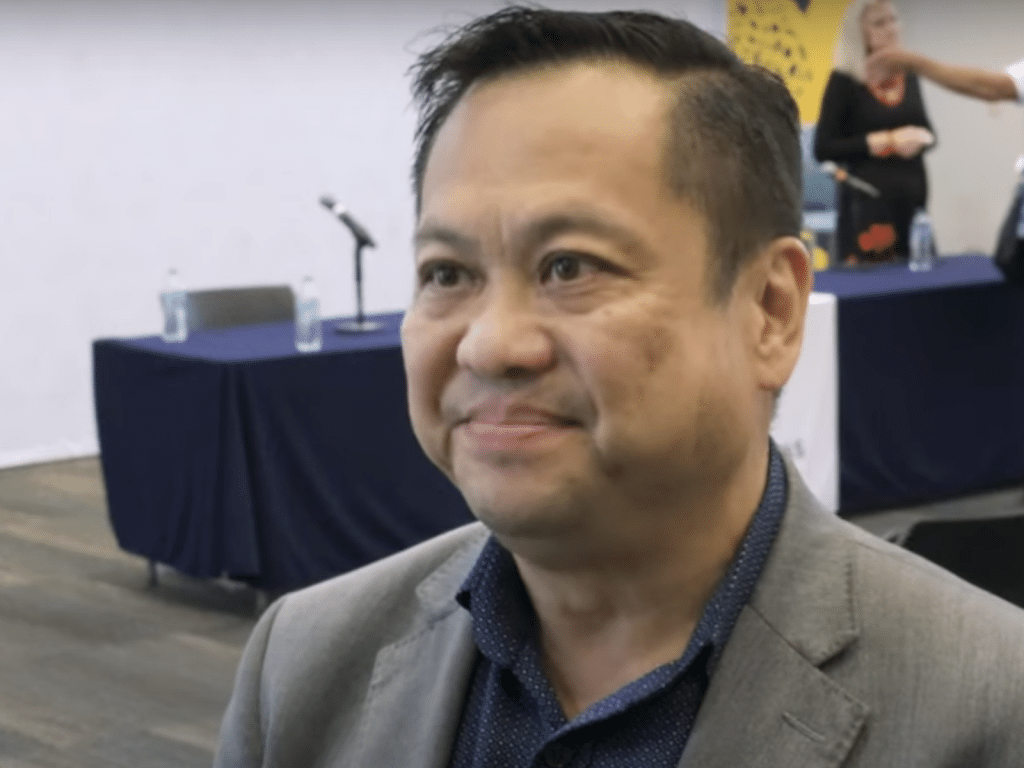Balancing Technology and Human Touch in Healthcare
MCALLEN, Texas – The integration of artificial intelligence (AI) in healthcare must not come at the expense of empathy, cultural sensitivity, and human interaction, according to Jayson T. Valerio, regional healthcare liaison at South Texas College (STC). Valerio shared his insights at the “Smart Cities, Smarter Economy – The Future of Automation in the Rio Grande Valley” forum, co-hosted by the Rio Grande Guardian and STC at the Pecan Campus in McAllen.

“As we embrace AI, especially in healthcare, it’s essential to remember that human touch remains irreplaceable,” Valerio emphasized. He stressed that compassion, caring, and cultural competence should be core values guiding the development and application of AI in healthcare.
While acknowledging that AI can significantly enhance efficiency and accuracy, Valerio pointed out its limitations: “It cannot replicate the emotional intelligence, empathy, and deep understanding that human professionals bring, especially in fields like healthcare, education, and customer service.”
The American Association of Colleges of Nursing and the Accreditation Commission for Education in Nursing have recommended integrating AI skills into STC’s nursing curriculum. Valerio anticipates that within three to four years, the Board of Nursing will mandate the integration of AI skills across healthcare programs.
During the forum’s panel discussion, Valerio questioned how automation could enhance rather than replace cultural sensitivity, caring, and empathy in patient care. He highlighted the importance of human interaction beyond mere digitization. Valerio appreciated panelist Dr. Jesus Campos’ comment that “critical thinking is still very important,” emphasizing the need for human judgment alongside technological advancements.
The discussion also touched on the vulnerability of healthcare systems to cyber-attacks. A local Valley hospital system was recently hacked, resulting in a two-to-three-week loss of electronic documentation. Valerio recounted a supervisor’s message: “Jay, you need to teach your students the basics of using paper because they didn’t have any electronic documentation for about two to three weeks.”
Other panelists echoed the potential benefits of AI in healthcare. Andy Garcia, president of Allied Consulting Group Texas, noted that AI could help reduce hospital readmissions by improving initial diagnoses. “The human mind can only evaluate a specific amount of data at one time,” Garcia explained. “A machine can process millions and millions of data points.”
Dr. Lyudmyla Dickinson emphasized that while AI will be implemented in all programs eventually, it’s crucial to prevent AI from “spread[ing] biases.” Dr. Campos added that AI could assist physicians in finding the right diagnosis, but the ethical and empathetic aspects of care would remain with human professionals.
As the healthcare sector continues to evolve with AI integration, professionals like Valerio are advocating for a balanced approach that leverages technology while preserving the irreplaceable human elements of care.


